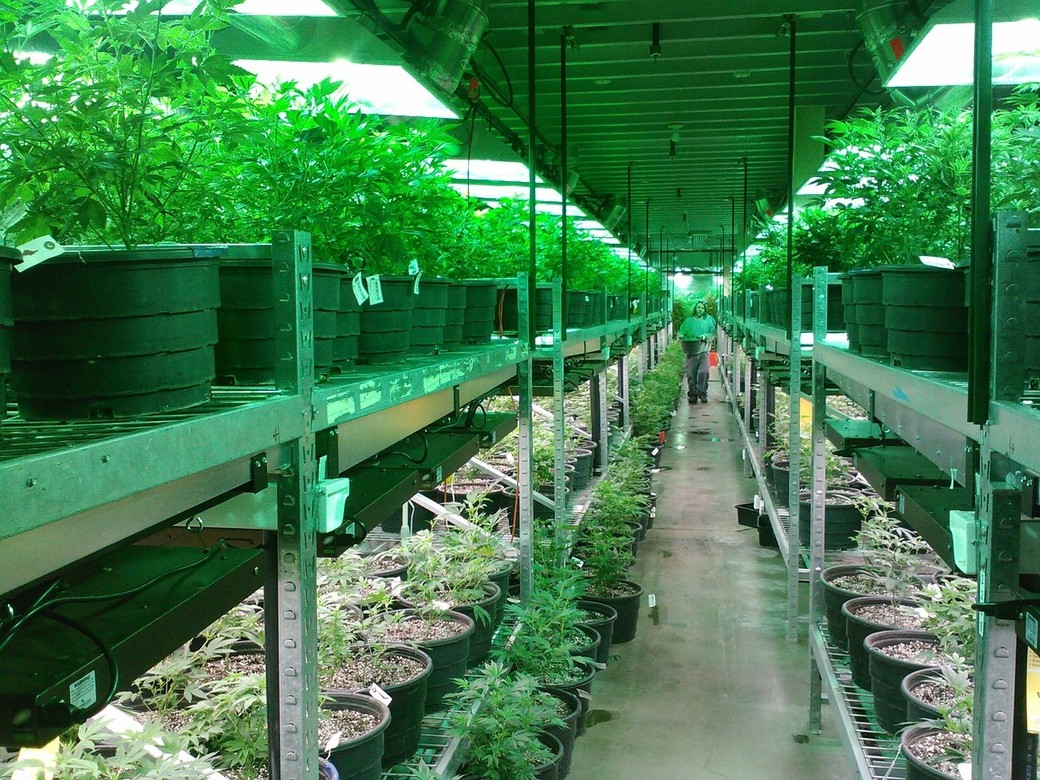
Bringing Order to Chaos in the Debate on Marijuana?
In the midst of Presidential Primary races in the USA, a federal election in Canada and myriad internationally supported and jurisdictional laws in place on the issue elsewhere on earth, marijuana has quietly dominated the media, political and business landscapes. Yet little, it appears, seems to be understood by the general public as this particular industry continues to grow and political agendas seem to be firming up
This essay purports to clear the air or shed some light on the matter.
Whether through the creation of new laws to protect its cultivation from illicit organizations, arresting criminal elements who distribute it, helping to create a framework for compassion clubs for patients who need it, or assisting governments in Canada, the United States, Uruguay, Mexico and Caribbean nations draft new laws or manage through the complexities of creating a new licensed producer regime, marijuana has been part of my life for over thirty years. Yet after all my media rants about its decriminalization, only now has this heretofore socially vilified plant become mainstream politically.

As context, in the early part of the new millennium, many states in the USA – starting with Colorado – passed legislation to make the cultivation and distribution of marijuana legal for either its recreational or medicinal use. These laws, initiated specifically in state legislatures, have provided great commercial benefit to growers and distributors in States like Colorado, Oregon and Washington, but there seems to remain no national and coordinated legislation for cultivation and distribution despite repeated claims from the White House.
As a result, I travel more and more to states that have adopted marijuana laws to advise those State governments or regional law enforcement agencies and even state regulated marijuana producers on issues of financial administration, security and best practices in marijuana growing and distribution. More and more, however, I am convinced that politics seem to be getting in the way of practicality and this may inhibit or hamper future benefit for licensed producers and ultimately those who need it throughout the USA.
To be specific, the lack of a national law for either recreational or medicinal use of marijuana has hampered opportunity for some patients who require it for medicinal purposes to even access it in states where there are no such laws in place. More startling is the fact that current licensed producers and distributors remain unable to actually deposit funds into FDIC banks – creating a virtual sit and wait opportunity for criminal elements.
In New York State Governor Cuomo reluctantly created regulations for the growing and distribution of medicinal marijuana. In his vainglorious attempt to appease every single side of the issue, he created a system where a literal handful of licensed producers would grow and cultivate cannabis for medicinal use – only as oils and edibles. The initial plan was heralded as innovative and was a boon for my consulting business, but when reality sunk in for potential license applicants, it became apparent that the benefit Governor Cuomo had wanted to create was seemingly as fleeting as his popularity.
Until the US comes up with a national law, the situation for cannabis will remain fluid in the United States.
In contrast, Canada’s new national marijuana regulation, the first in the world – MMPR, passed by the House of Commons in 2013, has been a success. The new Regulations were designed to limit the number of growers licensed to grow and distribute marijuana for medical purposes regulations (MMPR) to the general public. The essence of the new Regulations curtailed the opportunity for those who heretofore had dominated the marketplace with smaller and possibly illegal grow operations. Legitimate operations functioned under a set of regulations called the medical marijuana access regulations (MMAR) and were originally passed by the House of Commons in 2003 and designed to regulate the growing and cultivation of marijuana for a qualified patient – with a prescription – for access to the plant for his or her own personal use. The marketplace for marijuana in Canada, under the original MMAR was like the Wild West – illicit organizations controlled the small growers – making my job in law enforcement tougher.
Of course I was particularly pleased when the MMPR came into being and immodestly helped to push its passage. But, despite this good work and vision from Ottawa, the marketplace and the entire Canadian medicinal marijuana industry continues to be rife with issues as it transitions to the new Regulations.
In a very stark example, in the early goings of the process of the new MMPR, someone forgot to tell the courts that former MMAR growers (some 40,000 across Canada) would fight to keep their status quo and, as such, would band together to form a class action against the government. The subsequent court proceedings in BC Federal Court rendered a decision by Mr. Justice Michael Manson in favour of the class and cast the entire MMPR program into chaos all the while embarrassing the federal government. Had the government of Canada’s Health Canada simply stolen a page out of the myriad provincial governments’ prescription drug reform efforts, it would have created a more effective transition program to the new order.
More startling is that most newly minted licensed producers grow and sell as if they were still MMAR growers. Simply put, many newly licensed producers are seemingly too small in scale for a national program. Scale or lack thereof, has, in fact, created the unintended consequence of limiting supply to qualified patients – projected to be about 400,000 in Canada according to Health Canada – because newly licensed producers do not and cannot produce the scale of marijuana for such a large patient base. Little wonder the illicit marketplace and its organized cohorts remain entrenched in the Canadian market and continue to make it a considerable challenge for law enforcement.
Perhaps the most dramatic issue facing the new market, however, remains the failure of some municipalities to curtail the illegal distribution of marijuana at illegal dispensaries. My very public fights with Mayor Gregor Robertson of Vancouver are over the very public disregard he seems to have for controlling or curtailing this illegal activity, claiming that doing otherwise would drive the industry underground. If Canada is prepared to embrace new regulations for marijuana it must maintain the highest of standards for its distribution. The illegal sale of marijuana on Hastings Street in Vancouver is likely an even bigger embarrassment for the mayor of one of Canada’s greatest cities rather than the federal government.
Some Caribbean and South America countries like Jamaica, Chile and Uruguay have recently passed national laws to allow private companies to bid on licenses to grow, process and distribute marijuana. Seemingly the intent is to stave off efforts from the illicit cartels that have taken over the distribution of marijuana throughout those countries. It seems, too that the ancillary attempt with the creation of these new laws is to attract a spate of bidders from all over the world hoping to garner a license and reap the benefit of growing and selling legally in those jurisdictions.
Caribbean nations like Jamaica and St. Vincent, for example, have attracted investment from Europe, US and Canada seeking to take advantage of the export opportunity there. Stark reality may creep in when these investors begin to realize that these countries may not qualify to export into the lucrative US and Canadian marketplaces due to growing practices and scale issues.
Possibly the most startling example of good intentions and failed outcomes is Uruguay. Its quirky former President thought correctly that a national plan to legalize marijuana would stave off efforts by other South American to infiltrate its borders with illegal marijuana. It passed its legislation to totally legalize marijuana nationally and launched a global licitation, all the while electing a new President – a physician – who signaled a change in direction to medical marijuana while continuing down a path for bids for recreational marijuana. Full disclosure, I am involved in a bid in the country with a Canadian organization with experience in the cultivation and distribution of cannabis. To suggest that the process managed by Uruguay’s Institute of Regulation for Recreational Cannabis or IRCCA is both confused and opaque is understatement, which may render the unintended consequence of derailing the program altogether.
There are many moving parts to the entire regulating global marijuana market, including a shift in process and regulation in Canada as a result of the federal election, in the United States as pressure mounts for a federal law there and greater scrutiny on rogue international governments. Throughout one thing is clear – the growth of the market will continue as benefit of the plant continues to be ascribed in science and medicine and as money can be made. From my perspective, though, the best way to manage these issues without allowing the proliferation of nefarious elements and chaos is to ensure that law-makers have courage and that remedies for violators –including those in foreign jurisdictions – are established. Demonstrated courage by law-makers comes in the ability to create Regulation that demands good probity for all those who participate in the industry, to ensure that there is adherence to good quality in people and processes, that there is extraordinary oversight in place and above all, that the most effective security measures around are in place to keep the system and communities safe.
Remedies should include prison sentences for violators and for those who grow without a license and who seek to distribute without a license and sanctions for governments who are not transparent. Similarly, those who are licensed and violate any of Regulations or laws stand to lose their license and face the prospect of never being allowed a license again.
As for other jurisdictions, like South America, until those governments can demonstrate that they, above all, are not implicit or complicit in illicit activity or non-transparent behaviours, we will continue to have a lack of confidence in their programs or laws no matter how well intended they may appear.
Kash Heed is a former Solicitor General for the province of BC, retired Chief of Police in the West Vancouver Police Department and the former head of Drug Section and Gang Task Force with the Vancouver Police Department.








